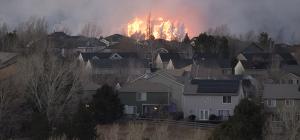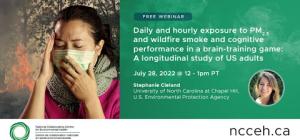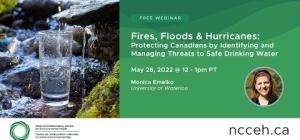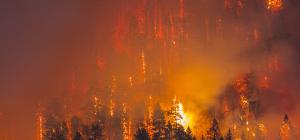Fires, Floods, and Bugs: How Climate Change Impacts Drinking Water Source Quality
Angela Eykelbosh, PhD
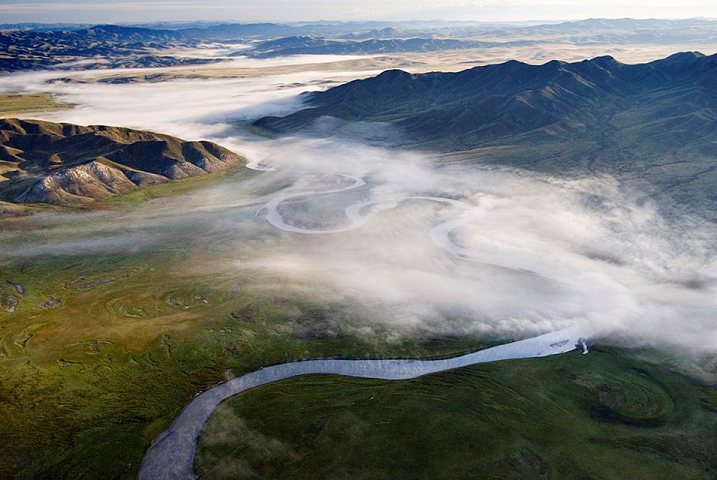
Canadian Institute of Public Health Inspectors (CIPHI) 82nd Annual National Educational Conference.
Climate change is anticipated to have myriad potential impacts on human health, some of which may be difficult to predict. However, the effects of climate change on ground and surface water, and the concomitant risk to human health through disruptions to drinking water, have been the subject of intensive research, particularly for communities with high quality source water supplies that originate in forested watersheds. Observed and modelled impacts include changes to the quantity of water available, as well as changes in water quality. Of particular concern are the anticipated increases in frequency of sudden shifts between high- vs. low-flow conditions, as well as rapidly changing and increasingly variable water quality, which may pose a severe challenge for drinking water treatment, particularly in small water systems.
This presentation will give a brief overview of research of how climate change is affecting stream and river water quality, primarily through changes in precipitation patterns, wildfires, infestation by the mountain pine beetle, and how these affect forested watershed hydrology and water quality. We will also draw on Canadian case studies and expertise, focusing on risk mitigation measures that start at understanding source watershed characterization and management.


